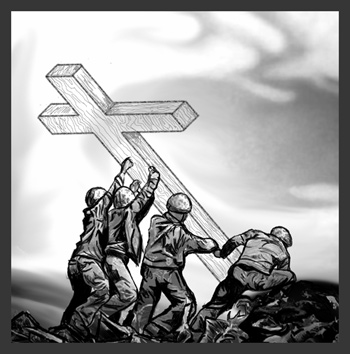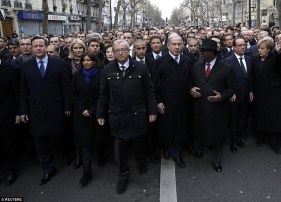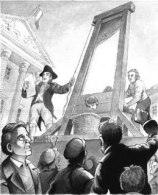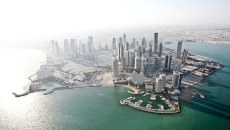Whilst it’s very common to find discussions of the role of political Islam in motivating and justifying violence, it’s much rarer to hear any in-depth discussion of the role of political Christianity in supporting the US military; yet, religiosity and support for the military do go hand in hand as is evidenced by this study as well as the plethora of religious iconography deployed by American military fanatics.
Religious people are born into a belief system which is already embroiled in a war; a battle between ‘good’ and ‘evil’. To sophisticated believers this is an analogy, or expresses a spiritual struggle as much within themselves as in the external world. To the more literally, fundamentalist minded, it lends itself to being easily translated into physical warfare.
To the American Christian Right, God and Country are founding pillars of their beliefs, and the country’s war is God’s war; be it against the ‘godless communists’ of the cold war or the ‘false religion’ of Islam today. Further back in history, the idea of Manifest Destiny supported the genocide of Native Americans, and after that, slavery. Christianity’s pedigree of violence and bloodshed is proven.
Some apologists will argue that Christian violence is all a matter of history, a point which becomes moot when one considers the bloodthirsty support of the Christian Right for the violence meted out by the US military. They play an essen tial role in providing political and spiritual cover for US military aggression. Their violence is merely disguised under the uniform of the US soldier and hidden beneath the veneer of state sanctioned conventional warfare.
tial role in providing political and spiritual cover for US military aggression. Their violence is merely disguised under the uniform of the US soldier and hidden beneath the veneer of state sanctioned conventional warfare.
The results are the same – beheadings, burnings and dismemberment.
Support for Israel is also heavily intertwined with Christian belief, particularly amongst dispensationalists for whom the Kingdom of God will be a literal Kingdom which lasts for a thousand years, based in Jerusalem with Jesus at its helm. These ideas don’t even originate from scripture; they come from the Scofield Bible which is a heavily annotated Reference Bible widely used in the United States and virtually nowhere else. The idea of the Rapture comes from the same source, and is equally unfounded.
The irony that, if the Bible is to be believed, Jesus was nailed to the cross by soldiers following orders, for breaking the law, is completely lost on most soldier-worshipping Bible bashers. In the same way, the instruction to ‘turn the other cheek’ is one of the few they choose not to take literally.
It’s no less the case for many of these fundamentalist Christians than it is for ISIS that eschatological beliefs play a central role in shaping their view of the world. To them, the forces of good and evil are on a collision course which will come to a head with the de struction of the world as we know it, and after which the wicked will be punished and the good rewarded. Of course, the one difference being that each regards the other as evil and themselves as good. What they hate in each other is simply a reflection of themselves made ugly by a vision cleared of self-justification.
struction of the world as we know it, and after which the wicked will be punished and the good rewarded. Of course, the one difference being that each regards the other as evil and themselves as good. What they hate in each other is simply a reflection of themselves made ugly by a vision cleared of self-justification.
Another of the consequences of American exceptionalism, which attributes economic bounty to blessings from God rather than to global imperial domination, is that it assumes that if prosperity is a consequence of godliness, then inversely, poverty must be be a consequence of sin. It completely negates any basis of legitimate political grievances derived from the economic disadvantages with which poorer nations are confronted. It is this which makes simple tropes like ‘they hate us for our freedom’ more credible than any actual analysis of economic, political and military cause and effect.
Once faith and politics combine, the mixture is toxic. As Bertrand Russell once commented, ‘The whole problem with the world is that fools and fanatics are always so certain of themselves, but wiser people so full of doubts.’ Any political ideas are open to debate and persuasion, whereas religious ideas derive from faith and have no ideological basis. They are far less mutable, and debating them can lead into a minefield of Biblical or Qur’anic quotations, interpretations and refutations… unless of course one simply goes for the foundation, the faith itself.
To me, as an atheist, there’s nothing more amusing than watching a Muslim and Christian in debate. However, the consequences are no laughing matter; with the certainty that God is on your side and that your actions are willed by God as part of a war against evil there is little room left for evidence, nuance, compassion, empathy or rational discourse. ‘They’ are evil, and evil needs to be destroyed. No matter the level of violence employed, the death and destruction caused in the name of holy war, the fundamentalist never reflects on their own actions to consider if they, too, might be evil.
The binary nature of beliefs is a problem. To me, nothing is ever entirely good or entirely bad, the beauty of a ny subject is found in understanding the complexity and nuances within it. Fundamentalist religious belief polarizes everything to one extreme or the other, both of which are wrong.
ny subject is found in understanding the complexity and nuances within it. Fundamentalist religious belief polarizes everything to one extreme or the other, both of which are wrong.
In their rejection of science, evolution, knowledge and intelligence in favor of the infallibility of an ancient Bronze Age text; religious fundamentalists of all persuasions represent a real challenge to all of the advances mankind has achieved since the Renaissance. They threaten to take us back to the world as it was before; rife with superstition and torture, where pain and suffering were seen as holy atonement for wrongs committed by a mythical ancestor who in all probability never existed. If the aim of religion is to elevate the human condition, it fails miserably in the hands of any literalist. It’s brutal.
If the consequence of a focus on ISIS is that the Christian Right is ignored, or worse, strengthened, then the threat of the rise of a Christian Taliban in the United States becomes ever more real. Given the power and armaments at the disposal of the US military, should they ever fall under their command, this is a far, far greater threat to humanity than ISIS could ever be.
We ignore it at our peril.






